NFTs
How NFTs Can Revolutionize Athlete Legacies and Fan Experiences | Video
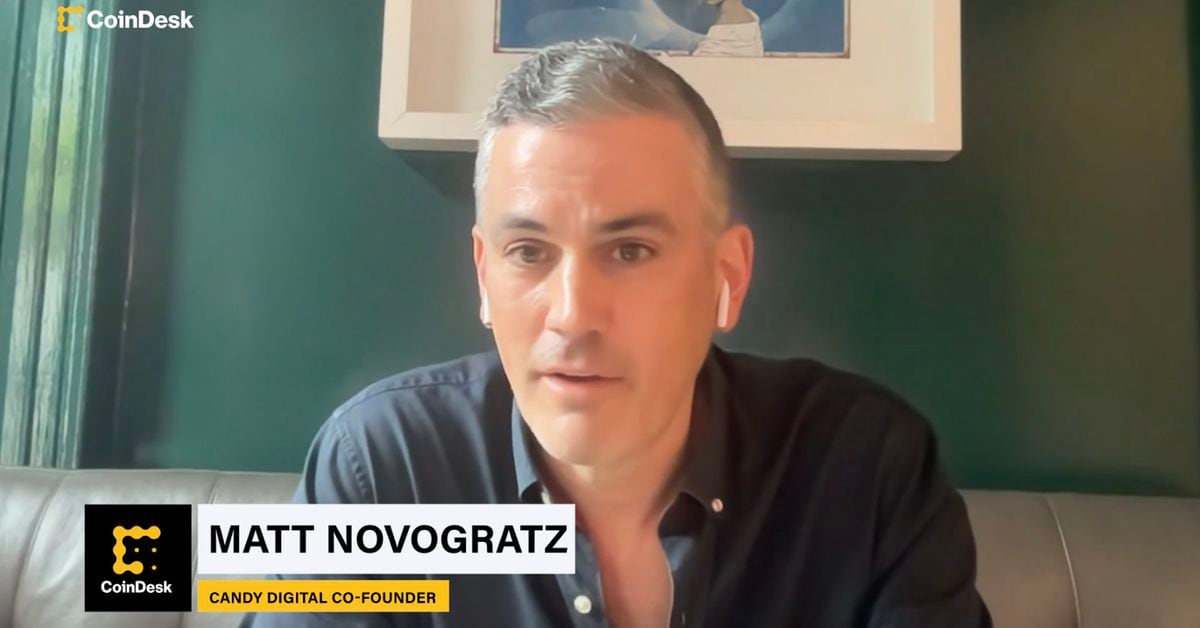
It’s game five week here at Coindesk, sponsored by Caisson where we take a look at the past, the present and future of web three gaming. Our next guest says NFTS and Blockchain based games are transforming the way we connect with professional sports. Matt Novogratz, co-founder of Candy Digital joins us now. Hey, Matt. Hey, how’s it going? Thanks for having me. Of course, we’ve been talking about games all week, but we have yet to connect them to professional sports. So I’m glad we’re having this conversation to wrap up our theme week. Now, Matt, when I think about sports and crypto, I go back when NBA top shot was like the talk of the town everyone was doing it. The basketball players were getting in. Um the, the NFTS were growing in value. People were trading, fans were super engaged. Talk to me about how things have progressed or changed since then. Yeah. And, and we get started shortly thereafter. Top shot and the landscape of things has changed a ton, right? I mean, I’m not sure the days of the million dollar PFP, a lot of named Animal project is, is coming back anytime soon, but you know, the, the things it’s given us everyone an opportunity to really build the, the rails for the future digital engagement and true ownership of these assets is, is, is, is only gonna grow, right? Like I, I look at my 10 year old who spends every dollar he has on Roblox, like his generation, um, like it’s table stakes for them to have ownership of their gaming assets. Like they will not accept that. So for the past few years, you know, we’ve been building those rails, we’ve been building more sustainable uh business model, we’ve been build, building more features, we’ve been building. Um uh we’re kind of what that next phase of this is, right? Like you can’t just sell digital lottery tickets anymore. Uh They’ve got these things have to have built in utility, you have to have a thought out roadmap. Um And gaming really feels like the next big unlock. I love talking to people about this who have kids because they understand it in such a different way. And that story has come up a lot of times in the interviews, I do that people with Children, their kids, they just want money that they can spend in Roblox. They’re not interested in physical items anymore. If you’re in a physical store like Costco or something, they want the gift cards so that they can go home and, and spend that money for I, I’m just curious uh for you as a father seeing this happen, I guess, through your child’s eyes, has it given you a better understanding of what you’re building and what the future looks like 100%. Um, in fact, uh, he’s often, uh, like one of our first testers on some of the things we do and like myself and I’m a traditional baseball card collector. I go to swap meets and conventions. Uh, I had a tough time seeing my kid doing that in 10 years or 15 years. Um So, yeah, like it isn’t crazy to me that people of his generation will put real value in these digital assets and these digital baseball cards in a different way than the speculative drivers of the, this first uh kind of bull rush did. You know, I’m so happy we’re having this conversation today. We do this segment on coin desk called Charter of the Day and yesterday, our chart of the day we looked at a RG Argentina uh football association’s fan token, it soared after they beat Canada and it pains me because I’m Canadian. But it was a really interesting use case to see that a RG Argentina football club’s fan to is doing so well. It was like, you know, wow, this is how fans are using some of these things to, I guess, like make bets on what their team is going to do. I know it does so much more, but talk to me a little bit about that. News in relation to sports teams. Do you think we’re going to see more teams adopt fan tokens? And how might we see fan tokens incorporated into the fan experience? Yeah, fan tokens are an awesome idea and it’s kind of creates the dow around a team in many ways you can vote on uniform combinations and one day maybe you can vote on trades and things like that. We’re not quite there yet. Um, I think it leads into whether it’s fractional ownership of sports teams where you really give fans uh a chance and a voice. Um You look at the, the European or the, so the German soccer clubs, they’re basically community owned, but the community doesn’t really get any value out of it other than, you know, they get to go to the games, they get to say this is my team. But if you actually put 20% of that team in a dow or fractional uh structure where you could truly own and trade these uh shares and then the fan really has a voice. Um That’s where it’s gonna go. Tell me a little bit more about that because we’ve seen, you know, one of the big challenges with Doos right now is that like incentivizing that engagement in a sustainable way, has, has become something that doos are really focused on solving. I don’t know if anyone has solved it yet. Like, how do we get fans to want to participate on a long term scale. Like how do we continue to incentivize them to show up every day and participate in some of these activities that are now being handled by management teams? Yeah, I mean, you’ve got to get more out of it than picking the fifth uniform combination. It’s gotta be, it’s gotta be something more and you have to get, you have to get rewarded. Like, um the biggest fans, I’m not saying that the most, the fan that spends the most should get, get rewarded, but people that participate the most should have different access. Um Whether that’s, you know, you scan your phone in and you, you have voted in the most votes. Uh You’re the most active participant in the dow like maybe that upgrade your seat for the day. Um There are different ways that you truly reward this engagement and, and again, like I, I really think there will be a time where uh there’ll be a seat at the table for the fan in the management side of things, whether that’s uh the dow has a proper board seat. Um But that’s how you incentivize it. You know, the solution is being introduced um in many different parts, I guess of the sports and entertainment industry artists are starting to adopt web three technology for fan engagement in a similar way. Uh And it’s all about removing the middleman, distributing value, distributing power, right? And the question I ask people when we’re talking about this with artists? Is, is there a place for the middleman? Is there a place for the publishers, the streaming services, the Hollywood Studios? And so I guess my question to you is, does this displace team owners, does this displace the big franchises and associations or is there a way for everyone to work together towards this future? Like I, I think it just enhances everything. Like when I look at social media with athletes, it’s pretty much a one way relationship where they just send out a tweet and maybe people would, you know, come back and then I think it got so nasty that they stopped reading the replies. Uh What, what web three allows for is truly like a one on one connection with your biggest fans, you know, who your biggest fans are and same with artists, right? If they can, they can do what they can take as much out of it as they want. But, you know, it’s nice to have the, the publishing muscle behind you, the promotion behind you as well. Um So I think it’s just, it’s a, it’s a, a great add on um in a way to get deeper if you want to tell me a little bit about the teams, the players, the franchises you’re speaking with from your position at candy, what kind of questions are they asking? Are they on board with this division or is it taking a little bit of convincing Yeah, you know, everyone’s a bit different. Um, some teams, some players were super early, they’re very into it. Others, a bit more skeptical. Uh Some of the events of the past couple of years have led to a few more skeptics with some, you know, less than great players in this space. But the true believers, um, you know, they haven’t wavered on their commitment to this and they’re continuing to grow. They know this is a longer, a longer vision. I think I always go back to this, like my favorite uh use case of what this can become. If you, you have your candy digital wallet, you scan into a game. Um And it says like I’ve got the most Tampa Bay devil rays, uh NFTS. Um and they get you upgraded because as I said earlier and when talking to the rays, for instance, like that’s something that they’re excited about. So some of the teams are very forward thinking and they’re constantly looking at ways to incorporate web through technology into the everyday fan experience. Tell me a little bit more about that. We’ve talked about NFT so far, we’ve talked about uh fan tokens. What do you think? Well, I guess you just told me about the use case but like, tell me a little bit more about that killer use case. That thing that’s going to uh bring web three to a mainstream sport audience. Yeah, I mean, it’s ticketing for sure when you look at the Super Bowl, the, the, the get in price is like 10 grand, the NFL C, none of that. They don’t know who their audiences are more importantly, right? So like all the big leagues, every, almost every, every ticket is sold in the secondary market, they have no idea who their, their fans are, the audience are. So how do you uh how do you engage with them, how do you offer them exclusive uh deals? Um So ticketing is one thing and it’s also the one thing the fan misses. We’ve done commemorative ticket with major league baseball for the last three seasons. It’s by far our easiest way to onboard people into the space because it’s something that they, that they lack for in the game day experience. They like it uh last year during the postseason. I think we on boarded close to 100,000, uh, new users to candy. And we also offered this ability to add in a moment or memory from the game, something like 35% of the people that downloaded one of these tickets or got one of these tickets added that memory in there, which is a staggering number, uh because it wasn’t like a super easy process. Um But it shows that that’s what fans want, fans want tickets. Uh They don’t care if it’s an NFT necessarily. Uh but it’s a good way to kind of, you know, sneak them on to the to our side uh and introduce them to this, this world. And then once they’re in, they might find out that like digital baseball cards or there’s a game that we’re offering on, on candy.com that they want to give a try. Uh And it’s a, it’s a nice, it’s a very nice introduction and I do think the sports leagues need it and it’s inevitable they will have it. Yeah. What you’re describing to me almost sounds like the next iteration of social media, but it sounds so much more social, right? You get to share and experience in this community that really loves one of the things that you love. It just feels like um uh a social experience with a little bit more substance than we’re used to. Yeah, for sure. And everybody doesn’t have to get as deep as they as they want, but it’s nice if it’s there for you. Um It’s great to be, I’m a huge Orioles fan. It’s great to connect with real Orioles fans and you find out and you, you can trade different uh different art items with them, you tell stories, but it’s, it’s a really, it’s true. And when you look at, you always talk about communities of web, three sports fans are kind of the original communities in America in many ways, right? Uh whether it’s at a sports bar or meet up. Um and this is just another offering that we think can really deepen that engagement. You mentioned hundreds of thousands of people being on boarded um through different sporting events. Do these people know that the Web Three Tech is there or is, has that been kind of abstracted away and hidden beneath the surface? Yeah, we’ve, we’ve definitely abstracted it um intentionally early on now, we’re realizing that um you know, people are ready for a bit more, but I do think that for the big wave for the next tens of millions of people to come in, it’s gonna have to be a super easy process where they’re, you know, they don’t necessarily need a, their own wallet, um right away. Uh But it’s more of an introductory introduction to the space. Um And that’s how we’ve had the, the easy success. We’ve had programs have been uh integrated within the major league ballpark app um in the past which you don’t even know what you’re doing, you’re scanning your ticket in normally. And then all of a sudden you get this offer to redeem a ticket, which is pretty cool. Now, before we wrap this up, tell me, is there one team, one association, one, franchise, one player that has done this really well, like who stands out to you? Who do we look to for that real glowing example of what could be in the future? You know, II I kind of have to say major league baseball, we’ve done some really cool stuff, but outside of us, the Australian open has done a really cool um did a really cool experiment a few years ago where you could own different pieces of the court. That was, that was awesome. Um I still think top shots done some pretty cool stuff out there. The NBA is forward thinking, major league baseball is forward, are a very forward thinking, uh, organization, all of these leagues. They know that, that they need to get into Web three and they are, they’re innovative groups. Um, and I expect big things in the future. Matt. Thanks so much for sitting down with me as we wrap up game week. Thanks a lot for having me and for any of you that want to read Matt’s piece that is on Coin desk.com. This is the last day of game five week. So if you head on over to our website, you’ll see a few videos and a bunch of articles that unpack where Web three gaming is going and all the industries that it’s touching head on over to Coin desk.com now.
NFTs
RTFKT Announces Project Animus Reveal, Launches Egg Unboxing Event Amid Mixed Reactions | NFT CULTURE | NFT News | Web3 Culture
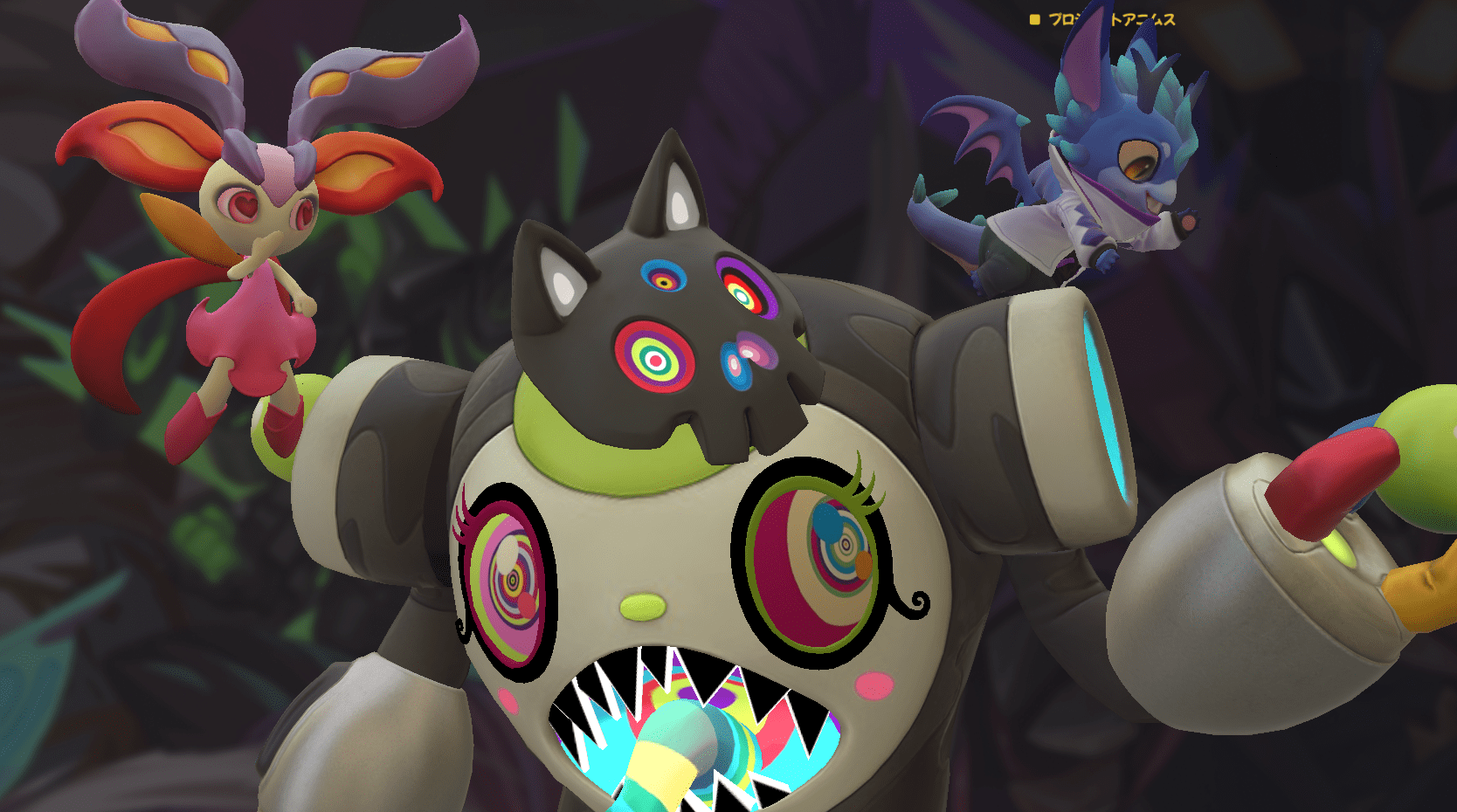
RTFKT, the innovative creator-led company renowned for its cutting-edge sneakers and metaverse collectibles, has officially unveiled its highly anticipated collection, Project Animus. This project marks a significant milestone in RTFKT’s journey, introducing a new dimension to its digital universe after a long period of development. However, the initial market response has been disappointing, with the revealed Animi trading at a floor price of 0.05 ETH, significantly lower than the eggs’ floor price of 0.09 ETH.
The Genesis of the Project Animus
Initially introduced in October 2022, Project Animus introduces a unique ecosystem of digital creatures called Animi. These Animi are designed to enhance Clone X’s avatars, offering an immersive and engaging experience for the community. The recent reveal showcased a diverse range of Animi species, each with distinct design traits and elemental attributes, breaking away from traditional trait-based rarity systems.
A New Digital Frontier: The History and Evolution of Project Animus
The Animus Project is RTFKT’s latest intellectual property, promising to revolutionize the NFT space with its unique digital creatures. The journey kicked off on October 8, 2022, with an interactive teaser event called “The Eggsperience.” This livestream event allowed attendees to explore a virtual Animus Research Facility, generating intrigue and excitement among the community.
Renowned artist Takashi Murakami played a significant role in the project, revealing the first Murakami-themed Animus creature, Saisei, on April 30, 2023. This collaboration added a layer of artistic prestige to the project, further elevating its status within the NFT community.
Animus Egg Incubation: A Journey from Egg to Animi
Clone X NFT holders had the opportunity to claim an Animus Egg until March 1, 2024. This was followed by the Animus Egg Hatching event, which ran from May 7 to June 4, 2024. During this period, holders of several RTFKT NFTs, including Clone X, Space Pod, Loot Pod, Exo Pod, and Lux Pod, were able to use a points-based system to increase their chances of hatching rarer Animi. The limited supply of Project Animus Eggs is capped at 20,000, with no public sale planned.
Mixed market reception
Despite the excitement and innovative features, the market reaction to the reveal of Project Animus has been lukewarm. Animi is currently trading at a floor price of 0.05 ETH, significantly lower than the eggs’ floor price of 0.09 ETH. This discrepancy has led to disappointment among some collectors who had high expectations for the project.
What Awaits Us: The Future of Project Animus
Following the reveal, RTFKT plans to release a collection of exclusive Animus Artist Edition characters. Holders of Clone X Artist Edition NFTs are guaranteed to get one of these special editions. The distribution will include 88 Special Edition Animus, with 8 Mythic (Dragon Sakura), 40 Shiny, and 40 Ghost Animus. The odds of receiving a Special Edition Animus are the same for all Eggs hatched, regardless of the points accumulated.
The remaining Animus characters will be distributed among unhatched Eggs, encompassing Special Edition Animus, as well as Cosmic Animus and Murakami Element from Generation 1, Generation 2, and Generation 3.
Conclusion
RTFKT’s Project Animus represents a bold step forward in the NFT space, combining cutting-edge technology with artistic collaboration to create an immersive and innovative digital ecosystem. However, the initial market reception highlights the challenges of living up to high expectations in the ever-evolving NFT landscape. As the project continues to evolve, it promises to deliver unique experiences and opportunities for its community, solidifying RTFKT’s position as a leader in the metaverse and digital collectibles arena.
Summary: RTFKT has unveiled Project Animus, introducing a unique ecosystem of digital creatures called Animi designed to enhance Clone X avatars. Despite the excitement, market response has been mixed, with Animi trading at a lower floor price than eggs. The project kicked off with an interactive event in October 2022, featuring collaborations with artist Takashi Murakami. Following the reveal, RTFKT will release special edition Animus characters. The total supply of Animus Eggs is limited to 20,000, with no public sale planned.
NFTs
The Olympics have reportedly ditched Mario and Sonic games in favor of mobile and NFTs
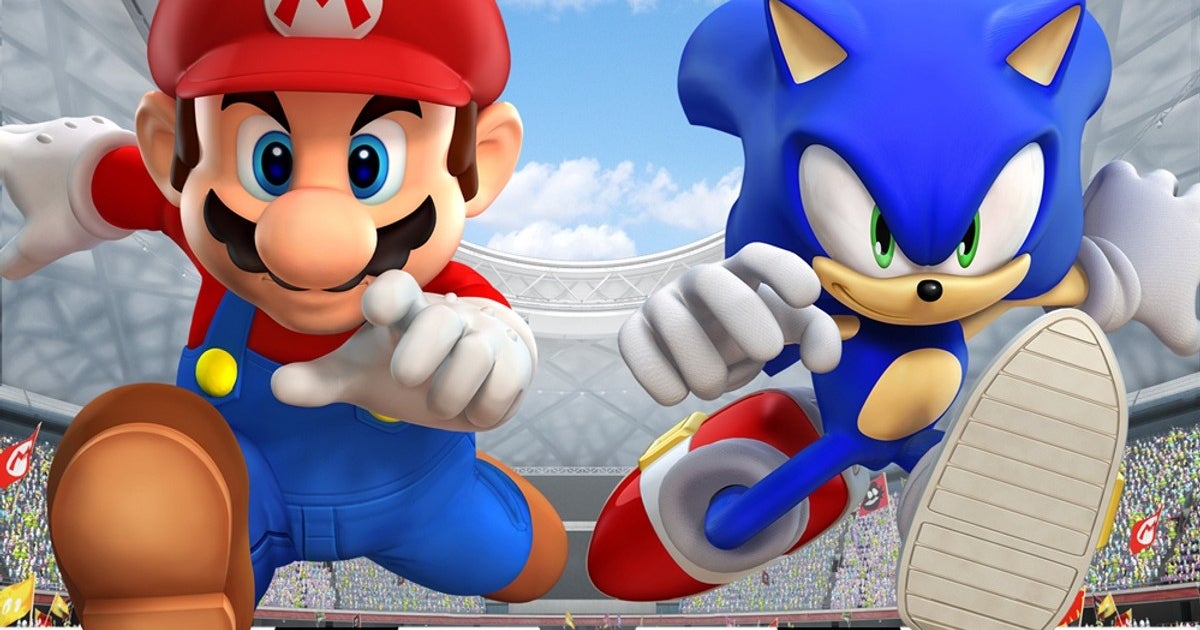
The long and historic partnership between Nintendo and Sega to create video games for the Olympics reportedly ended in 2020 as event organizers sought opportunities elsewhere.
Lee Cocker, who served as executive producer on several Mario & Sonic Olympics titles, said Eurogamer the International Olympic Committee let the licensing agreement lapse because it “wanted to look at other partners, NFTs and esports.”
“Basically, the IOC wanted to bring [it] “Turn inward and look for other partners so you can get more money,” Cocker added.
The 2024 Summer Olympics kicked off in Paris last week, but there were no Mario & Sonic games available in time for the event to begin – the first time this has happened since the original release in 2007 to coincide with the 2008 Beijing Summer Olympics.
Over the past two decades, there have been four Mario and Sonic adaptations for the Summer Olympics, as well as two for the Winter Olympics.
This year, instead of a Nintendo/Sega title, the IOC released Olympics Go! Paris 2024, a free-to-play mobile and PC title developed by nWay, which has worked on several Power Rangers games.
Olympics Go! allows players to compete in 12 sports and unlock NFTs from the Paris 2024 digital pin collection.
The original Mario & Sonic at the Olympic Games was announced in March 2007 and marked the first time the two mascots – once archrivals in the console wars of the 1990s – appeared together in a game.
NFTs
DraftKings abruptly shuts down NFT operation, leaving collectors panicking over vast holdings of digital tokens
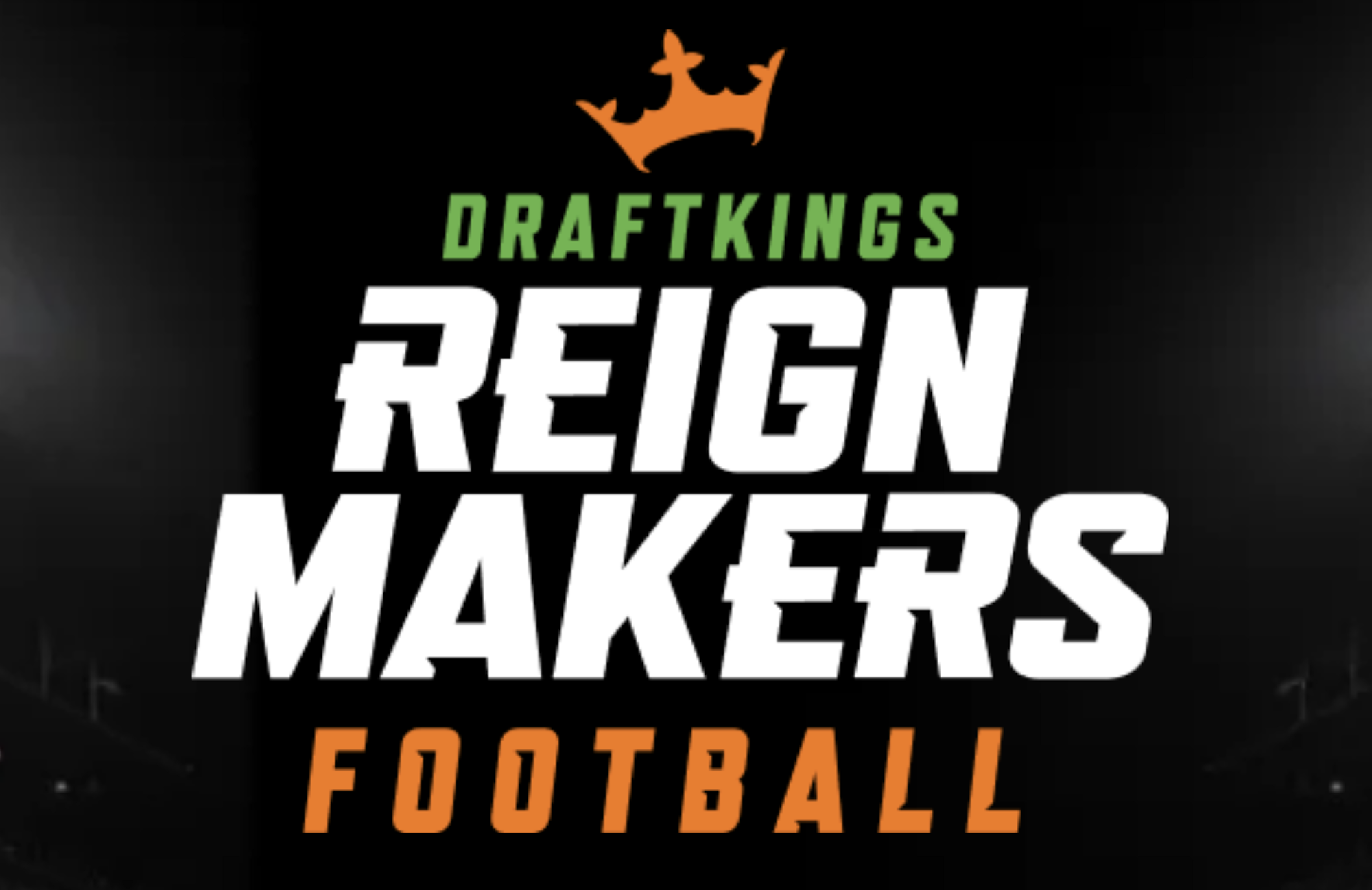
DraftKings, the daily fantasy sports and sports betting company, abruptly shut down a program called Reignmakers on Tuesday, posting a notice on its website and associated app and sending a mass email to some subset of its user base. Reignmakers, which the company launched in 2021, offered pay-to-play competitions in NFL football, PGA Tour golf and UFC mixed martial arts. The decision to eliminate the entire program, DraftKings says, was not made lightly but was forced “due to recent legal developments.”
DraftKings has yet to specify what “recent legal developments” are troubling its now-dead Reignmakers product. The company was sued in U.S. District Court in 2023 by a Reignmakers player named Justin Dufoe, who accuses the company of dealing in unregistered securities, taking advantage of relatively unsophisticated “retail investors,” and failing to market and support Reignmakers to the degree necessary to return to its users the financial benefits expected. DraftKings filed a motion in September to dismiss Dufoe’s complaint, but that motion was denied on July 2. A scheduling conference was held by the parties on July 29; Reignmakers was permanently shut down on July 30. A DraftKings spokesperson reached by Defector on Wednesday declined to confirm whether Dufoe’s complaint is the “recent legal development” that forced the company’s hand.
Users of the Reignmakers NFL product, who in recent days began murmuring on social channels about a notable lack of DraftKings activity so close to the start of the NFL preseason schedule, were caught off guard and, in some cases, devastated by the news. Members of the DraftKings Discord server, where all Reignmakers-related channels were abruptly shut down and locked following the announcement, flooded a general channel in various states of panic, sharing news, theorizing, lamenting, and, in some cases, openly worrying about whether it would be possible to recoup any decent fraction of the genuinely impressive sums of money they had invested in this DraftKings product.
Reignmakers is nominally a daily fantasy contest—users build lineups of players and then pit those lineups against other users’ lineups for cash prizes—but it’s actually a distributor of nonfungible digital tokens (NFTs), originated and sold by DraftKings, and then frequently resold on a dedicated secondary marketplace also hosted by DraftKings. At the lineup-building level, Reignmakers functions like a card-collecting game, with artificial scarcity driving the prices of the most coveted cards to insane, eye-popping heights. Reignmakers NFTs are tiered and offered in timed drops designed to heighten the sense of scarcity. A user can enter a lower-tier contest using a collection of NFTs that may have cost a few hundred dollars in total (or that were earned by purchasing random packs of NFTs that offer generally low odds of scoring top assets) and throw their lot in with hundreds of casual users competing for relatively unimpressive rewards. Random packs at the lowest tier would have prices as low as a few dollars; mid-tier cards—Star and Elite tiers, I’d guess—could cost a player upwards of $1,000.
But players interested in hunting down the biggest payouts, not just from games but from leaderboard prizes and other assorted prizes, would need to enter higher-tier games, and to enter the higher-tier games, a user’s collection needed to include higher-tier NFTs. DraftKings ensured that these cards were extremely scarce and could only be purchased directly on the marketplace at prices that any reasonable person would consider utterly insane.
For example, the highest-tier Reignmaker contests (called the Reignmakers tier, of course) have in the past been limited to listings with at least two of the highest-tier, rarest NFTs (also the Reignmaker tier) plus three NFTs from the second-highest tier (Legendary). NFTs at these tiers are expensive. Not just expensive in the way that, like, a steak dinner is expensive, but expensive in the way that buying even one of them should trigger a mandatory visit to a gambling addiction counselor, if not sirens and a straitjacket. Back in 2022a Reignmaker-level Ja’Marr Chase NFT from something called the Field Pass Promo Set could be purchased directly from the DraftKings Reignmaker Marketplace for a whopping $32,100.
Reignmakers users purchased NFTs at various levels with the expectation that owning them would convey better odds of winning contests hosted on DraftKings. This was the gamification element of Reignmakers, which emerged several months after DraftKings began trading and minting its NFTs. But as with all NFTs, a very large part of the real appeal for its buyers was the expectation, however insane, that these worthless, virtually worthless, infinitely duplicable digital images would increase in value over time. Now that both the Reignmakers game and the Reignmakers marketplace have been shut down, Reignmakers NFT holders are worried that their investments may have suddenly lost all monetary value. One Discord user described Tuesday as “a bad day to wake up and realize you have $2,000 worth of unopened NFL Rookie Packs”; Another user asked the group if they should expect “a refund” on the $10,000 they’ve already spent on Reignmakers NFTs this year. A pessimistic Reddit user posted tuesday that they would sue DraftKings if they were forced to take a total loss on a Reignmakers NFT collection worth approximately $100,000.
The game (scam?) was built to make numbers like these not only possible, but somewhat easily achievable. A user who intended to compete from a position of strength in multiple overlapping high-profile contests at the same time, and who had been in the blockchain madhouse for a period of years, could easily have spent six figures on Reignmakers NFTs. DraftKings used non-gaming incentives to entice players to spend more and more money, much like casinos give away free suites to players who over-bet on blackjack. Another Reddit user lamented the loss of the additional prizes and ranking bonuses he had hoped to earn in the upcoming NFL season by having a portfolio of NFTs that had reached the highest levels of value and prestige. “I was already loaded up on 2024 creation tokens and rookie debut cards,” said this Reignmakers userwho claimed his portfolio was finally “close to the top 250 overall.”
Dufoe’s complaint says the NFTs minted by DraftKings for Reignmakers qualify as securities, function like securities, and should be regulated as securities. In its motion to dismiss, DraftKings attempted to position its NFTs as game pieces — eye-wateringly expensive, yes, but essentially the same thing as Magic: The Gathering cards or Monopoly hotels. The court, in resolving these arguments, applied what’s known as “the Howey test,” referencing a case from 1946 in which the U.S. Supreme Court established a standard for determining whether a specific instrument qualifies as an investment contract. Judge Dennis J. Casper, in ruling against DraftKings’ motion, concluded that Dufoe could plausibly argue that Reignmakers’ NFT transactions represent “the pooling of assets from multiple investors in such a manner that all share in the profits and risks of the enterprise,” arguing that DraftKings’ absolute control over the game and marketplace effectively binds the financial interests of the company and the buyers, the latter of whom depend on the viability of both for their NFTs to retain any value.
Reignmakers users are different from Monopoly players in at least one crucial way: A person who buys a Monopoly board has no expectation from Hasbro that those little red and green pieces will appreciate in value. It’s a game! No matter what any hysterically conflicted party may say to the contrary, that’s not what NFT collecting is. DraftKings had been selling Reignmakers NFTs for months before they were gamified, and Dufoe, in his complaint, cites public comments made by DraftKings spokespeople that seem to explicitly position Reignmakers NFTs as assets with independent monetary value beyond their utility in Reignmakers contests. Judge Casper, in his ruling on the motion to dismiss, cites a Twitter account associated with a podcast run by DraftKings CEO Matthew Kalish, who in a tweet described NFTs as “the opportunity to invest in startups, artists, operations, and entrepreneurs all at once.” This is probably the kind of thing that NFT peddlers should stop saying. This advice assumes, of course, that NFTs will continue to exist as instruments on the other side of this and other lawsuits.
DraftKings has posted a worryingly sparse FAQ at the bottom of the your ad Tuesday, anticipating but largely failing to address questions from players who see this as yet another in a long line of brutal blockchain rug pulls. In a hilarious reversal of existing Reignmakers policy, Reignmakers users are now allowed by DraftKings to withdraw their Reignmakers NFTs from their DraftKings portfolios and into their personal NFT wallets, where those NFTs will have precisely zero value, to anyone, for the rest of all time. There’s also vague language about Reignmakers users having the option to “relinquish” their NFTs back to DraftKings in exchange for “cash payments,” subject to “certain conditions” and according to an as-yet-unspecified formula that will take into account, among other things, the “size and quality” of a player’s collection.
Reignmakers users are not optimistic. Those who claim to have been victims of other blockchain market crashes are warning their peers on Discord and Reddit to expect payouts that amount to pennies on the dollar; in the absence of any clarifying information, users are unsure whether cashing out their NFTs from Reignmakers to their personal NFT wallets, for reasons that completely pass any and all understanding, would effectively preclude the possibility of delivering these silly digital tokens back to DraftKings. It remains to be seen what exactly DraftKings has in mind with the “certain conditions” attached to the delivery process. There is much that has yet to be resolved. A DraftKings spokesperson contacted by Defector indicated that more time would be needed to answer a list of specific questions and issued a statement noting that it is “in DraftKings’ DNA to innovate and disrupt to provide the best possible gaming experiences for our customers.” The original complaint is embedded below.
Do you know anything about the demise of Reignmakers, either from the consumer side or from the DraftKings side? We’d love to hear from you. Get it in touch!
Recommended
NFTs
There Will Be No More ‘Mario & Sonic’ Olympics Because of NFTs
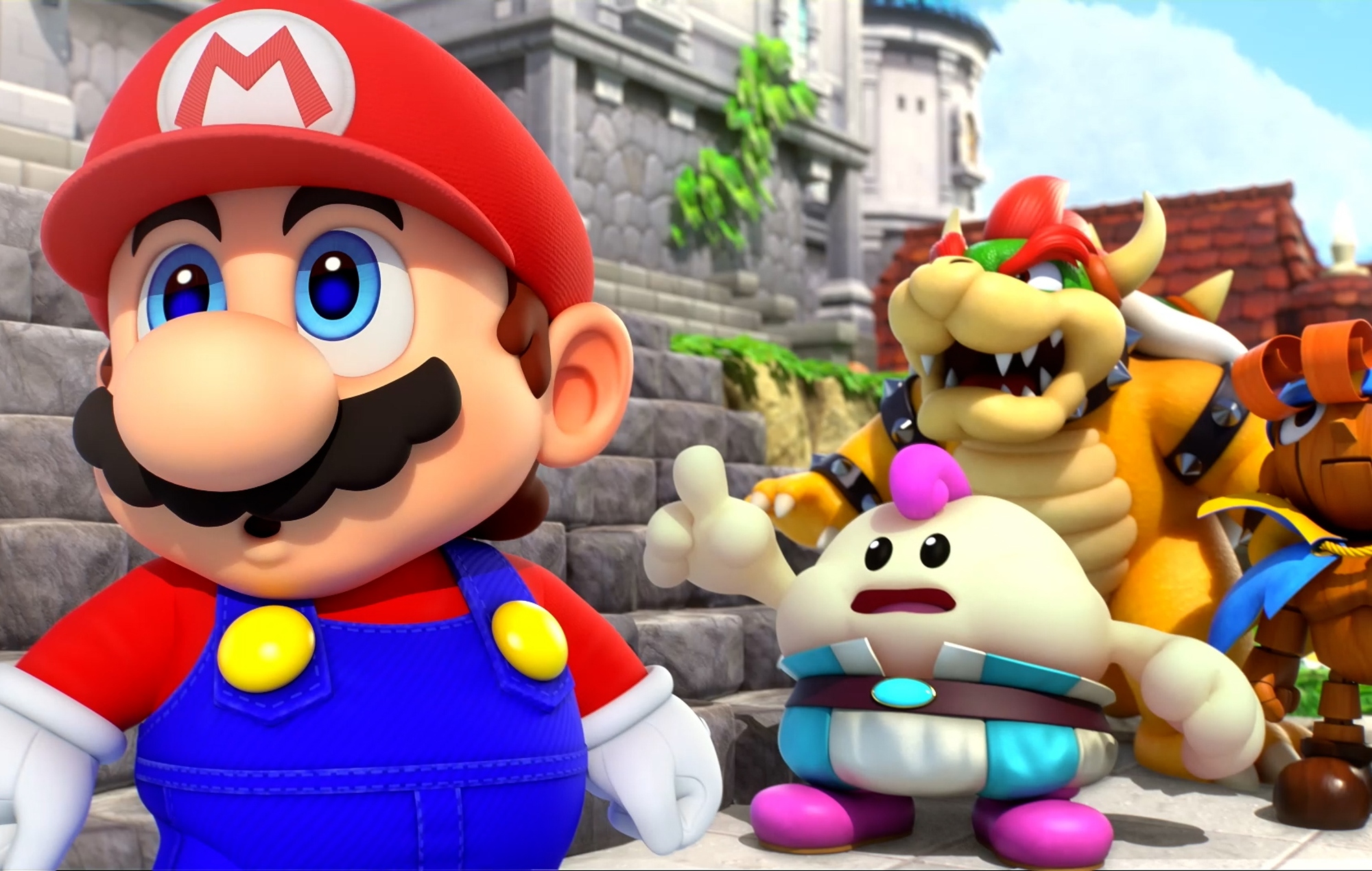
Nintendo and SEGA have been teaming up with the Olympics for several years now in the popular Mario & sonic in the Olympic Games series, but a new report claims the International Olympic Committee has abandoned the series in favor of new deals in eSports and NFTs.
According to Eurogamer“A veteran behind the series,” Lee Cocker, told the outlet that the IOC chose not to renew its license with SEGA and Nintendo, letting it expire in 2020. “They wanted to look at other partners and NFTs and eSports,” Cocker told Eurogamer. “Basically, the IOC wanted to bring [it] turn inward and look for other partners so they could get more money.”
Mario & Sonic at the Olympic Games is a series that has been running since 2008, with six main games covering the regular and Winter Olympics. In the games, players could control various characters from the Mario and Sonic franchises and compete in Olympic sporting events.
It’s no secret that NFTs are a big part of this year’s Paris 2024 Olympics. Olympics Go! Paris 2024 is a mobile and mobile-connected game your site states that players can “join the excitement of the Paris 2024 Olympic Games with nWay’s officially licensed, commemorative NFT Digital Pins collection honoring Paris 2024!”
As for eSports, Saudi Arabia will host the ESports Olympic Games in 2025. This is part of a partnership with the Saudi National Olympic Committee (NOC) that is expected to last for the next 12 years and is expected to feature regular events.
IOC President Thomas Bach said: “By partnering with the Saudi NOC, we also ensure that Olympic values are respected, in particular with regard to the game titles on the programme, the promotion of gender equality and the engagement with young audiences who are embracing esports.”
In other news, Someone claimed they’re suing Bandai Namco because Elden Ring is too difficult.
-

 News11 months ago
News11 months agoMore Crypto AI Alliances Emerge Following $7.5 Billion Token Merger — TradingView News
-

 News11 months ago
News11 months agoOver 1 million new tokens launched since April
-

 Memecoins9 months ago
Memecoins9 months agoMemecoins dominate major derivatives in terms of open interest | Flash News Detail
-

 Altcoins11 months ago
Altcoins11 months agoAltcoin Investments to create millionaires in 2024
-

 News9 months ago
News9 months agoInvest Now: The Hottest New Cryptocurrencies of August 2024 That Could Skyrocket
-
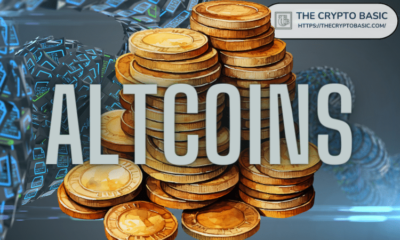
 Altcoins9 months ago
Altcoins9 months agoOn-chain data confirms whales are preparing for altcoin surge with increased buy orders
-
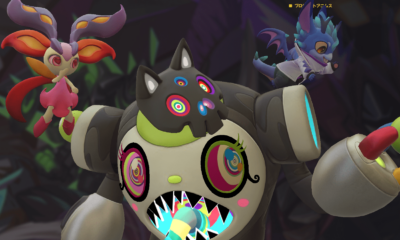
 NFTs9 months ago
NFTs9 months agoRTFKT Announces Project Animus Reveal, Launches Egg Unboxing Event Amid Mixed Reactions | NFT CULTURE | NFT News | Web3 Culture
-
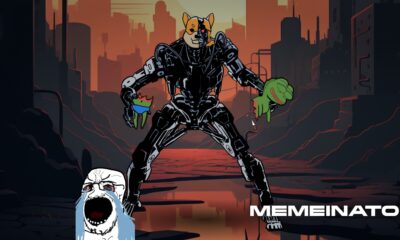
 Altcoins9 months ago
Altcoins9 months agoHot New Altcoin: Memeinator’s Price Upside Potential in July
-

 Videos12 months ago
Videos12 months agoMoney is broke!! The truth about our financial system!
-
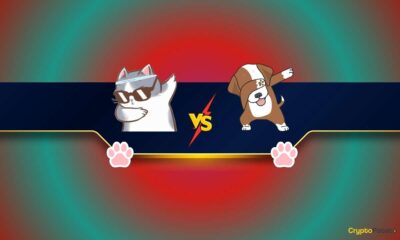
 Memecoins11 months ago
Memecoins11 months agoChatGPT Analytics That Will Work Better in 2024
-
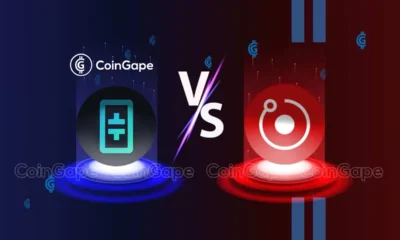
 Altcoins11 months ago
Altcoins11 months agoRender vs. Theta; Which DePIN Altcoin to buy in May
-

 NFTs12 months ago
NFTs12 months agoSurprisingly, Bored Apes is now laying off employees as the NFT market disintegrates





